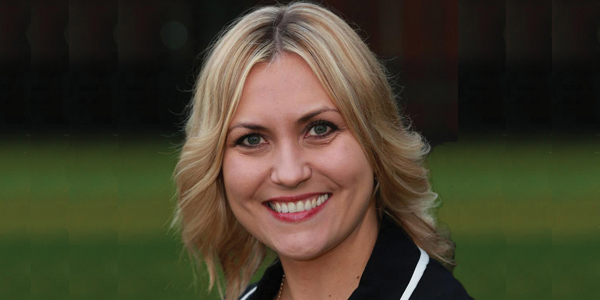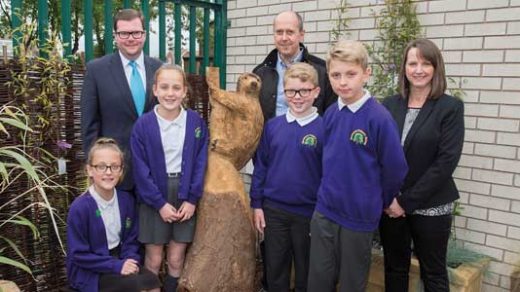Interview with: Mrs Ania Hildrey, headteacher of Abbot’s Lea School

Educate recently had the opportunity to sit down with headteacher, Mrs Ania Hildrey, to discuss her vision to create an international centre of excellence in autism education, research and professional development.
Abbot’s Lea is a specialist school in leafy Woolton, South Liverpool, that delivers high quality education for students, aged 3-19 years old, living with autism and a range of associated communication, interaction, social imagination, sensory and learning differences.
Mrs Hildrey has been leading the school for four years. Talking about her first visit, she says: “I found everyone to be very welcoming and friendly but the school itself appeared a touch physically neglected, and it proved to be in significant financial deficit. It was quite inward-looking and had very few local, national or international partnerships in place at the time, and despite a strong team spirit, I had discovered rather limited professional development opportunities for the staff, unfortunately some did not see that they could progress within the school and many did not have access to high quality professional inquiry.”
However, it was the lack of therapeutic provision for the students and limited family engagement in the life of the school that took Mrs Hildrey aback most. “All of these observations and fact-finding moments contributed to my wanting to develop things for all the school’s stakeholders. I worked with the students, listened to the parents, consulted with the staff and then, with the Governing Body and the support of the Local Authority, we launched our vision for the creation of an international centre of excellence in autism education, research and professional development. We are now working hard to make this vision a reality!”
Reflecting on the start of the headship, Mrs Hildrey says: “No matter how experienced one is as the headteacher, every new school one leads is unique. It is therefore imperative to be able to master the fine balancing act of relying on one’s previous knowledge, skills and expertise arising from leading other organisations before and yet, at the same time creating the time to truly learn about the current school.”
She believes it is critical to get to know the context within which the school operates to truly begin to grasp the task of leading its people well, considerately and in a way that brings out the best in people. She says: “That can only be done if we invest time into getting to know the personal and social stories.”
“As the headteacher, you are an administrator of a large, multimillion pound, publicly funded organisation, where the bureaucracy takes over a lot of the time and one becomes very task-driven. I have to create time in my busy diary to walk the school and talk to students and staff. Otherwise, the days can very easily be swallowed by being sat in front of the computer and churning reports.”
Originally from Poland, Mrs Hildrey interest in special education took her to the UK in 1999, where she has settled both personally and professionally, teaching, lecturing and conducting educational research in a range of schools, FE Colleges and at the University of Glasgow.
She says: “Although I have been coming to Liverpool since 2004 as my husband is from Crosby, I had not noticed the true level of inequality in the city until I moved here. Having grown up in 1970s/80s Poland and having experienced rations and hunger, I have been truly shocked to see just how many of my students and families suffer as a result of that inequality.”
“It is heart-breaking to see and so very wrong. Rather than break me, it spurs me on to do good and to ensure that we as a school raise aspirations and create opportunities for all of our students, regardless of their background. This bar-raising has also been a challenge, as deeply rooted limiting beliefs can, at times, be the biggest barrier to personal and school progress. We are definitely getting there, though!”
Many changes have been put into place at the school. Mrs Hildrey and her senior team have created the unique holistic ‘Philosophy of Education: The ASD Model©’ with equal focus on academic studies, specialist therapeutic support and development of life skills.
As well as clearing the £500k deficit within a couple of years, there has been year-on-year investment into the school environment, teaching resources, technology and provision.
In 2018, Abbot’s Lea launched a supported internship programme which gives senior students the chance to gain valuable work experience at companies from within the city. To date, this includes Amey plc, Cadent Gas, Speke Hall, Aloft hotel and The Regenda Group. This saw the school win the Career Aspiration Award at last year’s Educate Awards.
A research and development function has also been launched, allowing the school to drive new knowledge-creating projects.
“This is life-changing for our practice within the school and our school-to-school support which we offer often. We also work with other external organisations on creating new knowledge in the field of education, special education, autism and neurodiversity in workplaces.
“Our aspiration has always been to be the voice for change: positive change. What we know today will expire tomorrow and it is critical that we do not passively wait for the new truths. We must co-create them. We listen to the students with autism, their families, we work with the staff in our school and other schools, we liaise with FE and HE sectors and we learn with, and from, the best around the world. Practical action research is as important as the theoretical academic inquiry and we do both!
But what sets Abbot’s Lea apart from other special schools? Mrs Hildrey isn’t in the business of comparing or competing. She says: “Every school is unique. The 12 special schools in Liverpool work very closely together and I consider my fellow headteachers in those to be not only colleagues but friends.
“Objectively, Abbot’s Lea School is one of the largest single registration special schools in the country and the largest, to my knowledge, that caters exclusively for students with autism.”
She explains that she wants every student to feel ‘mighty’. “I know, I know, this sounds very grand, but I mean it. There is something about people who know who they are, what they want and who just go for it, without too many inhibitions, anxieties and fears for making a fool of themselves. Such self-assurance and drive make people mighty!”
Talking about her greatest achievement since joining the school, Mrs Hildrey says: “It’s work in progress! Despite my natural and learnt optimism, I think perhaps surviving moments when I had felt pretty lonely, hopeless and helpless and overcoming the ever-present imposter syndrome…”
And what does she love most about her job? “I love literally everything! I would not be doing the job if it was not worth doing, I feel I have the best job in the world: a civil service with a moral duty to always do the right thing by the students I serve! What’s not to love!”




